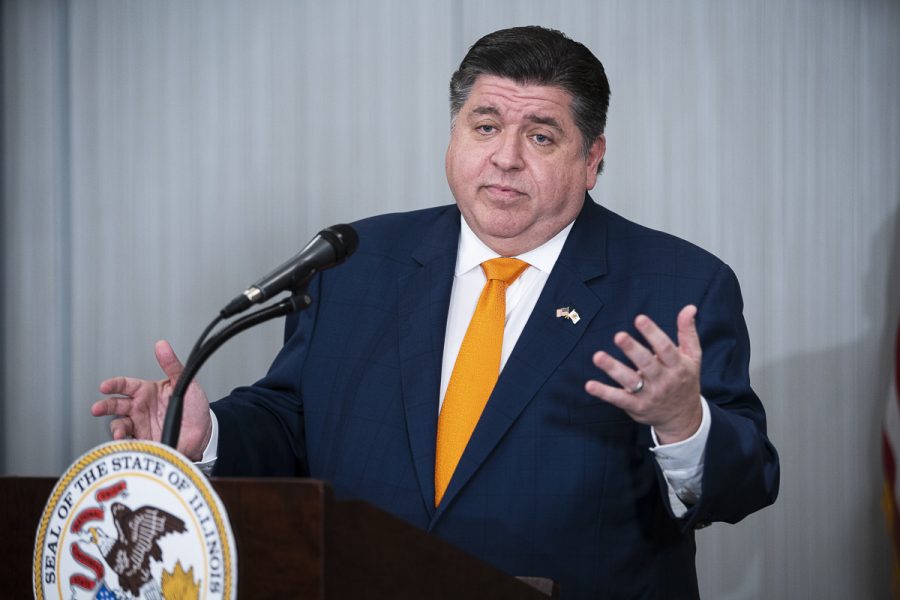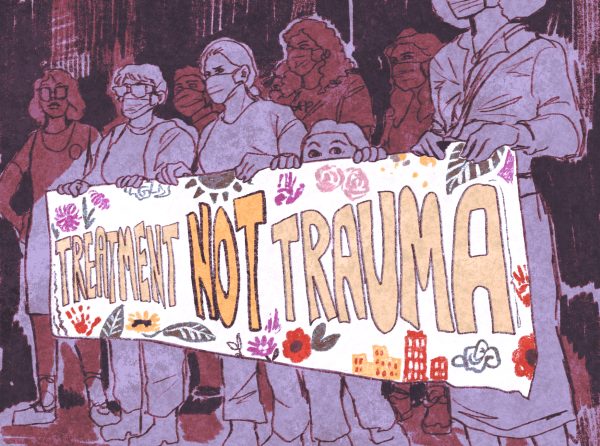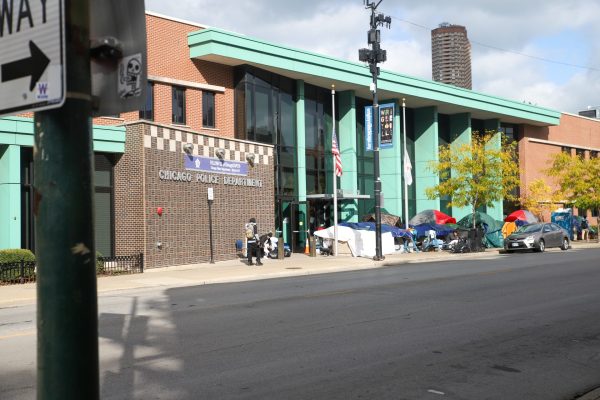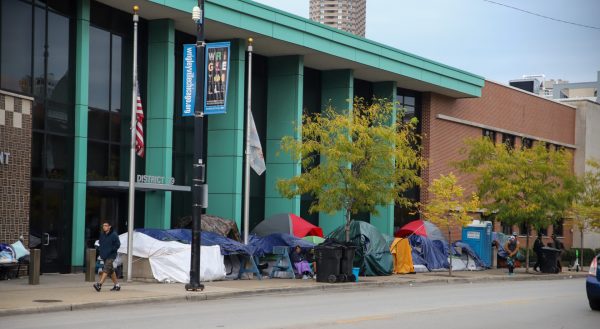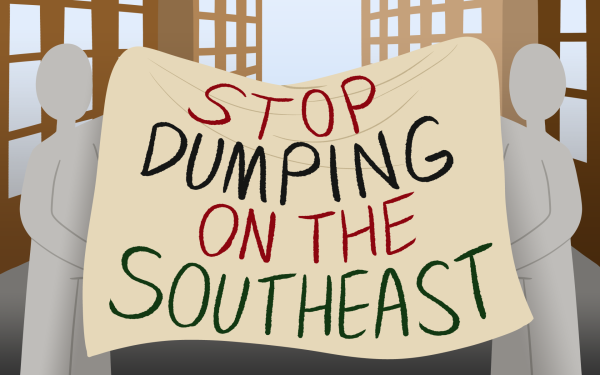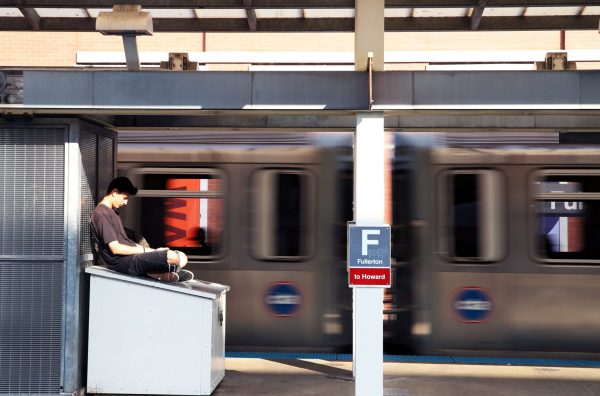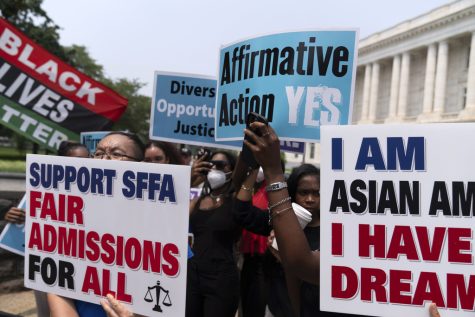SAFE-T stalled: cashless bail halted by Illinois Supreme Court, ruling not expected until Spring
Anthony Vazquez | Chicago Sun-Times via AP
Illinois Gov. J.B. Pritzker answers questions from the media during a press conference at the Marriott Marquis Hotel in Chicago, Wednesday, Nov. 9, 2022. A variety of new laws take effect Sunday, Jan. 1, 2023 that could have an impact on people’s finances and, in some cases, their personal liberties.
Illinois was slated to become the first state in the country to entirely eliminate cash bail, with the Pretrial Fairness Act set to take effect on Jan. 1. But on Dec. 31, just hours before the law would be implemented, the Illinois Supreme Court put the act on hold.
It will remain halted until Illinois Attorney General Kwame Raoul’s appeal of a Kankakee County judge’s ruling on the matter is heard, which is not expected to happen until April.
The Pretrial Fairness Act eliminates cash bail and replaces it with a new process for pretrial release. It is part of the SAFE-T Act, a package of criminal justice reform initiatives aimed at removing inequities in Illinois’s judicial system.
All other aspects of the SAFE-T Act are in place; only the cashless bail component is being held up in the state’s Supreme Court until its constitutionality is determined. The stakes are high, as deeming it unconstitutional would make eliminating cash bail significantly more challenging in the future, according to policy experts.
“If the Supreme Court affirms the lower court’s decision, cashless bail is going to be dead in Illinois without an amendment [to the state constitution],” said Joe Tabor, director of policy research at the Illinois Policy Institute.
Judge Thomas W. Cunnington is the Kankakee County judge that deemed the bail reform and pretrial release provisions in the SAFE-T Act unconstitutional. Cunnington’s ruling indicates that these terms in the act violated the separation of powers clause and the Victims’ Rights Act.
The ruling also states that the SAFE-T Act’s unconstitutionally amends Article 1, Section 9 of the Illinois Constitution since voters were denied their right to vote on the amendment.
“Had the legislature wanted to change the provisions in the Constitution regarding eliminating monetary bail… they should have submitted the question on the ballot to the electorate at a general election,” Cunnington wrote in his ruling.
Supporters of the Pretrial Fairness Act don’t think the constitutionality debate holds much weight.
“The legislature regulates the way the criminal legal system works and the way that judges make decisions all the time,” said Sarah Staudt, director of policy at Chicago Appleseed Center for Fair Courts. “We already have laws that allow judges to use systems very similar to the one in the Pretrial Fairness Act to hold people no bail.”
Confident in its constitutionality, Staudt hopes the halting of cashless bail is nothing more than a delay.
“It’s a frustrating setback, but ultimately, one that we are confident is temporary,” she said. “We feel confident that the Illinois Supreme Court will reverse the lower court’s decision and eventually find the [Pretrial Fairness Act] constitutional.”
Meanwhile, the act’s adversaries like Jeff Fiedler, executive director of the Chicago Republican Party, are relieved that cash bail will remain in place for now.
“We were pleased that cash bail didn’t go away,” Fiedler said. “We’re hopeful that the Supreme Court is going to see it the way that we think it should be. But the court tends to be very political in Illinois.”
Fiedler doesn’t buy the bill’s implications that cash bail is inherently discriminatory. He argues judges are the ones who decide whether or not a person is detained on bail before trial, and that is a right that they should have in the state.
“We just thought that it was better to give the judges an opportunity to have the wherewithal to be able to keep somebody behind bars,” he said.
Staudt disagrees.
“We know that cash bail is discriminatory because it has a massively disparate impact on Black and Brown folks around the state,” she said. “They’re the people who most often suffer from the imposition of cash bail. And that means that we’re taking money out of Black and Brown communities, and we’re taking people out of Black and Brown communities.”
Skeptics like Fiedler fear that ending cash bail will lead to a sizable rise in crime since pretrial detention would be far more limited under the Pretrial Fairness Act. It’s why some called the initiative a “purge law” back in 2022.
“We just think it’s going to become more of the wild, wild west,” Fiedler said.
Based on existing bail reform data, however, Staudt said these fears are largely unfounded.
“New Jersey essentially hasn’t used cash bail since 2017; they’ve seen no rise in crime,” she said. “We’ve massively reduced our jail population here in Chicago since 2014, and in the years that the jail population was falling, we did not see a rise in crime.”
Regardless of the act’s potential impact, Illinoisians will have to wait until spring for a ruling on cashless bail. Oral arguments in the case are scheduled to begin in March, but at the time of writing, no date has been set.


